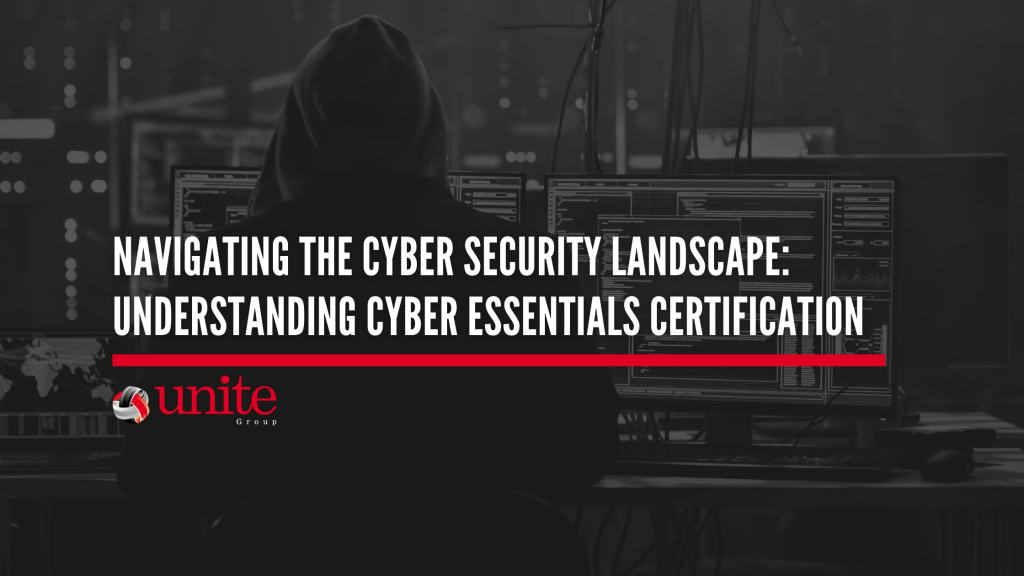
In an era where technology intertwines with every aspect of business operations, the need for robust cyber security measures has never been more critical. Cyber threats loom large, and organisations must take proactive steps to protect sensitive information and maintain the trust of their clients and stakeholders. One such proactive measure is obtaining the Cyber Essentials certification.
In this blog post, we will delve into the fundamentals of Cyber Essentials certification, what it entails, and why it is a crucial step in fortifying your organisation’s cyber security posture.
Defining Cyber Essentials Certification
Cyber Essentials is a cyber security certification program developed by the National Cyber Security Centre (NCSC). Part of the UK Government Communications Headquarters (GCHQ). The primary objective of Cyber Essentials is to provide a baseline of cyber security practices that organisations should implement to protect against common cyber threats.
At its core, Cyber Essentials certification is designed to help businesses of all sizes bolster their cyber security defences. It acts as a fundamental building block, laying the groundwork for more advanced security measures. By achieving Cyber Essentials certification, organisations demonstrate their commitment to cyber security best practices. As well as, sending a clear signal to clients, partners, and regulators that they take the protection of sensitive information seriously.
The Core Principles of Cyber Essentials
The Cyber Essentials certification focuses on five key areas. Known as the “Essentials,” that form the foundation of a strong cyber security posture:
Secure Configuration: This involves ensuring that systems are configured securely, reducing the surface area available for attackers to exploit. It includes settings such as firewall configurations, access controls, and user permissions.
Boundary Firewalls and Internet Gateways: Implementing robust firewalls and gateways is crucial to control incoming and outgoing network traffic. This helps prevent unauthorised access and protects against external threats.
Access Control: Managing user access effectively is vital to preventing unauthorised individuals from gaining access to sensitive data. This includes implementing strong password policies, multi-factor authentication, and regular access reviews.
Malware Protection: Protecting against malware is a cornerstone of cyber security. This involves implementing antivirus and anti-malware solutions to detect and neutralise malicious software that could compromise the integrity of your systems.
Patch Management: Keeping software and systems up-to-date with the latest security patches. This is essential to address vulnerabilities that could be exploited by cyber attackers. Regularly updating and patching systems minimises the risk of security breaches.
The Certification Process
Achieving Cyber Essentials certification involves a straightforward process:
Self-Assessment Questionnaire: Organisations begin by completing a self-assessment questionnaire that covers the five essential security controls. This questionnaire helps evaluate the organisation’s existing cyber security measures.
External Vulnerability Scan: Organisations must undergo an external vulnerability scan conducted by an accredited cyber security professional. This scan identifies potential weaknesses in external-facing systems and networks.
Submit Documentation: Once the self-assessment questionnaire and external vulnerability scan are completed, organisations submit the necessary documentation to a certification body for review.
Certification Decision: The certification body reviews the documentation and issues the Cyber Essentials certification if the organisation meets the required standards. In some cases, organisations may need to address specific issues before certification is granted.
Why Cyber Essentials Certification Matters
Protection Against Common Threats: By adhering to the principles outlined in Cyber Essentials, organisations can fortify their defences against common cyber threats such as phishing, malware, and unauthorised access.
Customer Confidence: Cyber Essentials certification is a tangible demonstration of an organisation’s commitment to cyber security. It instils confidence in clients, partners, and stakeholders, assuring them that their data is in safe hands.
Legal and Regulatory Compliance: In an increasingly regulated business environment, Cyber Essentials certification can help organisations demonstrate compliance with legal and regulatory requirements related to data protection and cyber security.
Competitive Advantage: Cyber security is a differentiator in the modern business landscape. Organisations with Cyber Essentials certification gain a competitive edge by showcasing their dedication to safeguarding sensitive information.
In Conclusion
In a world where cyber threats continue to evolve, Cyber Essentials certification provides a solid foundation for organisations to build their cyber security resilience. It is a proactive step toward mitigating common risks, fostering customer trust, and demonstrating a commitment to cyber security best practices. As organisations strive to navigate the complex landscape of digital security, Cyber Essentials certification emerges as a beacon of assurance, guiding them toward a more secure and resilient future.
To learn more about Cyber Essentials, visit our page. Or alternatively, contact our team on 0191 466 1050.
